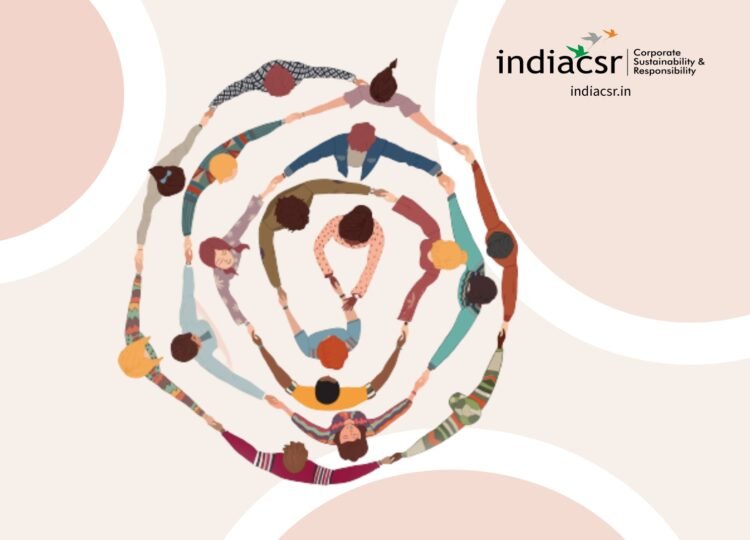By Reynard Loki
A new public-private collaboration unleashes the power of universities and social entrepreneurship to solve the world’s most pressing developmental problems
“A core part of my global development strategy is harnessing the creativity and innovation of all sectors of our society to make progress that none of us can achieve alone,” said President Obama in a statement released in February that promoted his “all-hands-on-deck” approach to addressing today’s global challenges. “The new collaborations we’re launching today will help save lives from hunger and disease, lift people from poverty and reaffirm America’s enduring commitment to the dignity and potential of every human being.”
One of the new private and public cross-sector collaborations that the White House announced is the Higher Education Solutions Network (HESN), a partnership between the U.S. Agency for International Development (USAID) and universities, an innovative program that the White House broadly defined as a partnership “to define and solve large development challenges.”
“The Obama Administration is committed to investing in science, technology, innovation, and education to effect real change,” said Dr. John P. Holdren, director of the White House Office of Science and Technology Policy. “The USAID Higher Education Solutions Network will promote excellent research at home while helping partners around the world tackle long-standing development challenges.”
HARNESSING THE BEST IDEAS: INTERNATIONAL COOPERATION AND COLLABORATION
The founding academic partners participating in the HESN’s launch include: Massachusetts Institute of Technology (MIT), University of California-Berkeley, Michigan State University, Duke University, Texas A&M University, The College of William & Mary and Makerere University in Uganda.
Specifically, over the course of a five-year partnership, USAID will fund awards (with a total ceiling of $130 million) for these and other single university and consortia centers along with requests that applying universities provide their own funding to leverage the public investment. For every $10 of USAID funding, the founding universities and their partners have contributed an additional $6.60 toward the initiative.
HESN is “the latest step in USAID’s efforts to harness the best ideas from the academic and scientific community and young people worldwide to foster transformational progress in development,” said USAID administrator Rajiv Shah. “Through this network of Development Labs, we will recapture the legacy of science, technology, and innovation as core drivers of development—as well as inspire and support the next generation of development leaders.”
SEAD: ACCELERATING SOCIAL ENTREPRENEURSHIP
One of the granted programs is the recently launched Social Entrepreneurship Accelerator at Duke University (SEAD), a development lab for scaling global health innovations to solve health problems in low- and middle-income countries. A joint initiative between the Center for the Advancement of Social Entrepreneurship (CASE) at Duke’s Fuqua School of Business, the International Partnership for Innovative Healthcare Delivery (IPIHD) at Duke Medicine and the Duke Global Health Institute, SEAD was officially launched on November 8 with a $10 million USAID grant.
“SEAD epitomizes our mission at CASE to prepare current and emerging leaders, and the organizations that support them, to achieve real and lasting social change,” said Matt Nash, CASE’s executive director. “With our partners across Duke, we aim to provide social entrepreneurs in global health with the knowledge, systems, networks and tools needed to succeed.”
Nash described SEAD as “a virtual hub for faculty and students interested in global health, international development, innovation and entrepreneurship and civic engagement” that could “inspire a commitment to change-making in global health among a new generation of students.”
OPENING DOORS, MAKING DEALS: ENTER THE VENTURE CAPITALISTS
Investors’ Circle (IC)—a network of venture capitalists and angel investors seeking to increase the flow of capital to early stage companies that address major social and environmental problems—has been selected to partner with SEAD to provide access to capital for social entrepreneurs. With offices in San Francisco, California, and Durham, North Carolina, IC has pumped $152 million with an additional $4 billion in follow-on investment into more than 250 enterprises and funds dedicated to solving issues dealing with the environment, education, health and community.
“Our network has been investing in health, wellness and biotech opportunities for twenty years, many that address health challenges around the world,” said Tom Balderston, an IC board member and managing principal of SustainVC, an early-stage venture capital management group. “We’re excited to apply this expertise to help scale the most promising innovations emerging in global health.”
To support SEAD, IC will help prepare innovative health enterprises receive capital through workshops and webinars and create a “Global Health Track” vetting process that includes two virtual venture fairs and partnerships that facilitate the flow of deals in the global health sector.
FUELING THE FUTURE: SCALABILITY NEEDS CROSS-SECTOR SUPPORT
“This partnership brings everything entrepreneurs need to scale their innovations—sector-specific business development support, scaling expertise, relationships with corporate partners, and a connection to private capital,” said Bonny Moellenbrock, executive director of Investors’ Circle. “We’re honored to be a part of this effort to effectively address the world’s critical health needs, and hope to replicate all this groundbreaking collaboration in other sectors as well.”
“To successfully identify and scale these innovations, we’ve learned you need a cross-sector support system—direct technical support from experienced entrepreneurs, sector and market expertise, corporate partnerships, resources to assess impact and glean best practices, and connections to capital,” said Moellenbrock. “That’s what’s most exciting about SEAD: It understands the role of each player, and is bringing all of them together in a systematic way to provide this support.”
That’s the kind of collaboration that is fueling President Obama’s global development strategy, and echoes U.N. Secretary-General Ban Ki-Moon’s focus on a cooperative, cross-sector global environment as a prerequisite for achieving the Millennium Development Goals (MDGs). As Ban said in his recent message on United Nations Day, “No single leader, country or institution can do everything. But each of us, in our own way, can do something.”[15] Now that’s an idea worth accelerating.
Reynard Loki
Reynard is a Justmeans staff writer for Sustainable Finance and Corporate Social Responsibility. A former media executive with 15 years experience in the private and non-profit sectors, Reynard is the co-founder of MomenTech, a New York-based experimental production studio that explores transnational progressivism, neo-nomadism, post-humanism and futurism.
( Article published under 3BL Media-INDIACSR partnership)




























